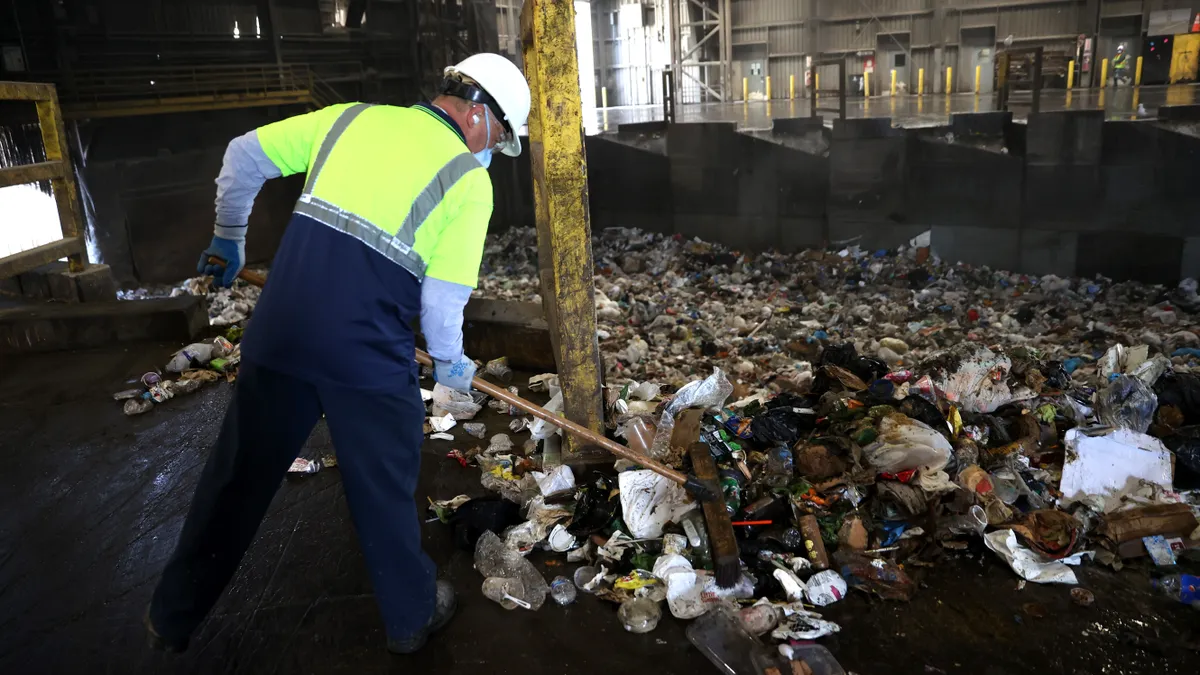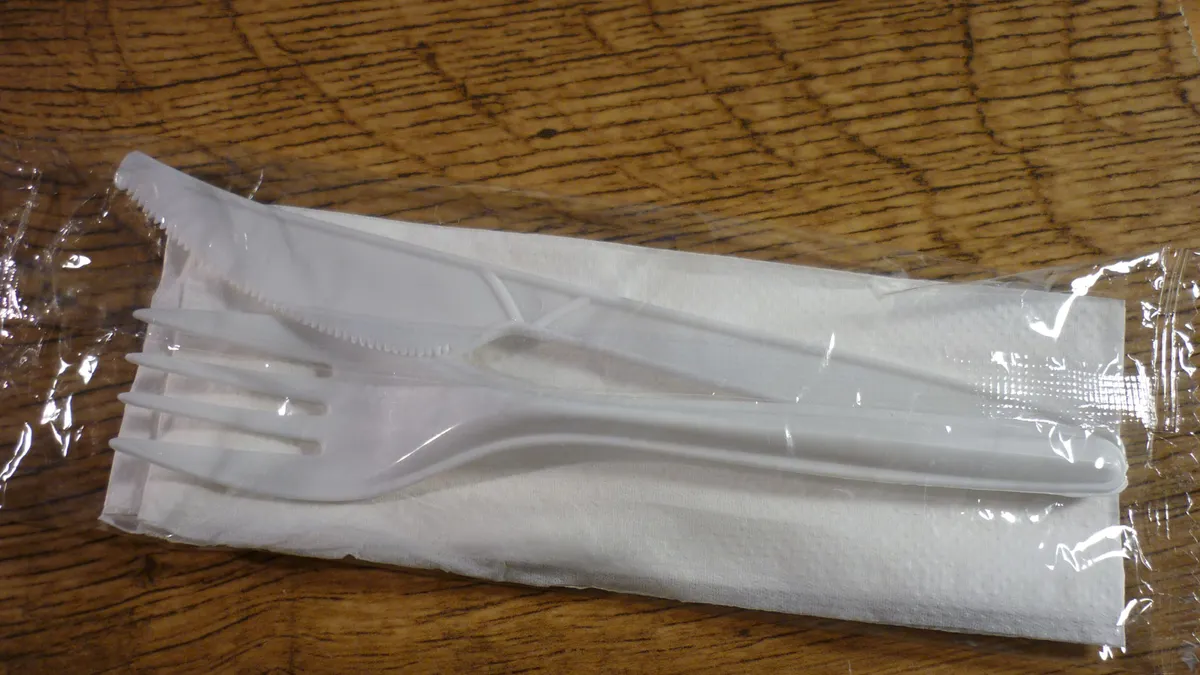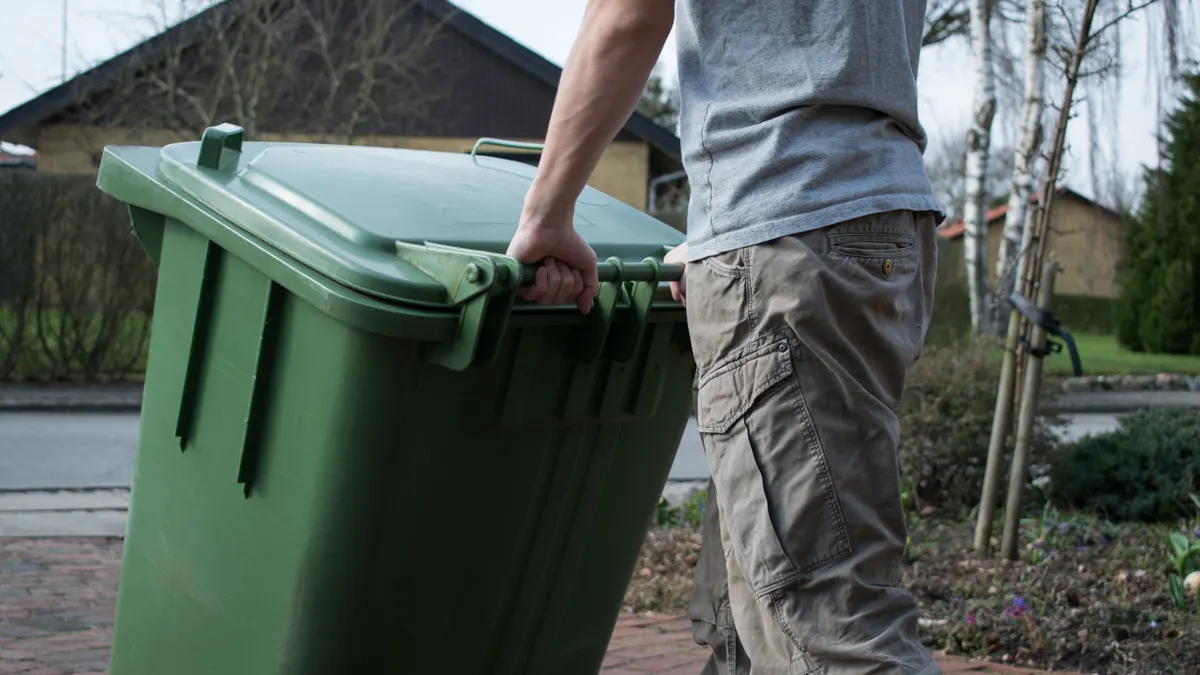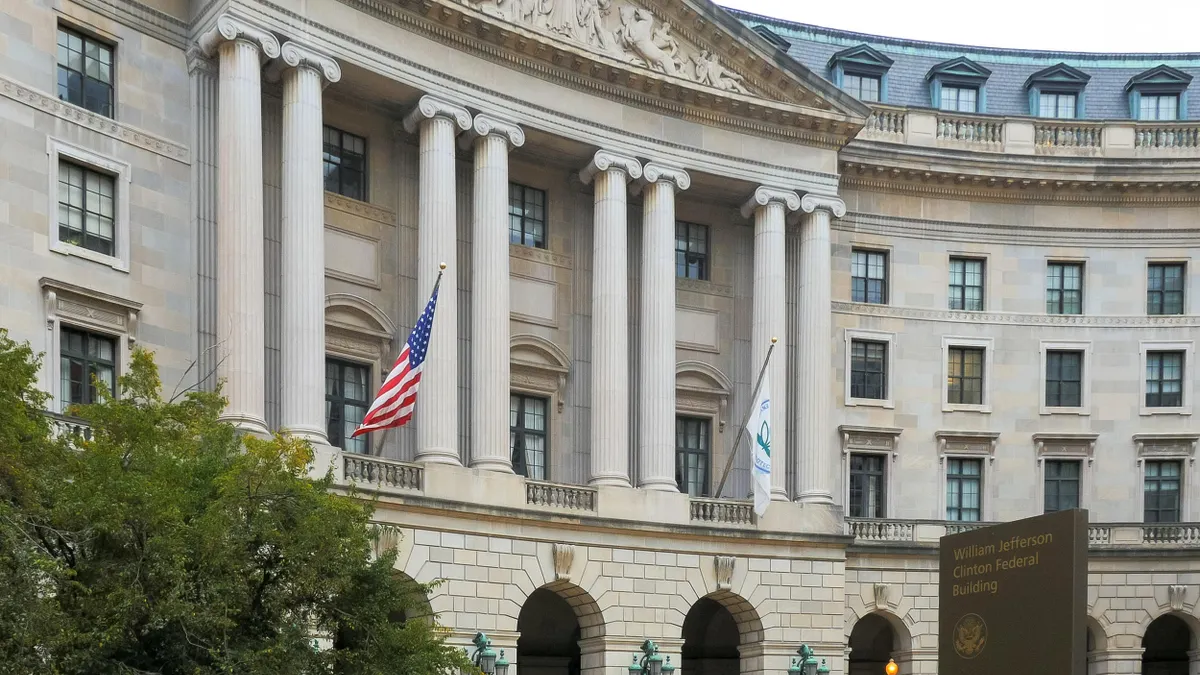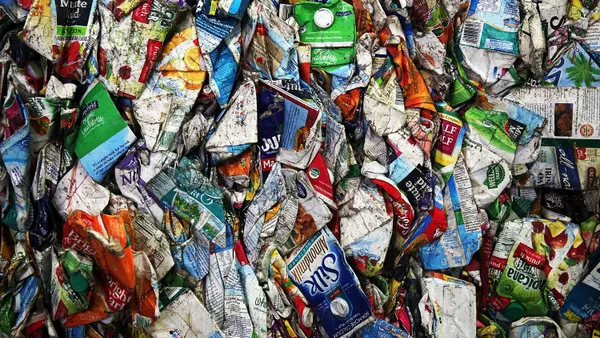Bottle bill advocates are playing the long game when it comes to advancing notoriously difficult-to-pass legislation.
That means small victories can help propel container recycling legislation forward even when a bill doesn’t pass, said speakers at a July 9 webinar hosted by the Container Recycling Institute.
Speakers discussed key details of recent container deposit legislation efforts in Maryland, Texas and Rhode Island, including work to bring in new stakeholders and underscore container deposit systems’ roles in helping to curb pollution in waterways.
In 2025, lawmakers proposed new or expanded bottle bill legislation in 14 different states, plus a bill in Iowa to repeal that state’s program and a technical changes bill in Maine, said Susan Collins, CRI’s president.
Here’s a look at some lessons learned from each state’s strategy:
Texas focuses on building consensus with an eye toward July special session
The bill: HB 2048
The bill called for allowing beverage container producers to form a 501(c)(3) and establish a deposit refund system, with the goal of achieving a 75% recycling rate by 2035. Maia Corbitt, president of Texans for Clean Water, noted that the bill didn’t specify a refund value for containers. It would be up to the producer responsibility organization — and market forces — to help determine how much the deposit should be to achieve that 75% recycling rate.
The Texas bill also allowed curbside material to be included in the redemption program. It would have allowed the PRO to keep the full refund value and the scrap value of redeemed containers to help run the system.
Corbitt estimated the state needs about $135 million to build out “away from home” recycling collection infrastructure, while CRI estimates the state is losing up to $390 million a year in scrap value from containers that aren’t recycled.
“We certainly want to maintain vibrant curbside systems and grow curbside where we can in Texas, so harmonizing the curbside and away-from-home systems was important to this,” she said.
Lessons learned
Though the legislature ran out of time to consider the bill before the end of the session, Corbitt said this version got the furthest along in the process compared to other bottle bills from recent years.
What was different this time around? The bill had wide-ranging bipartisan support, she said, because sponsors made sure to meet with a wide range of community stakeholders and businesses to accommodate different views of how the bill language worked. The bill passed out of several key committees as a result, she said.
“Getting out of committee is the first and the highest hurdle,” partly because the legislature only meets every other year for a total of about 140 days, giving lawmakers limited time to gain momentum.
Bill supporters included key groups like NAPCOR, the National Stewardship Action Council, the Aluminum Association and the Glass Packaging Institute, along with major beverage companies like Red Bull.
The biggest opposition came from the beer and alcohol industry, typically a major opponent of bottle bills. Some scrap metal recyclers were also concerned that putting a deposit on aluminum drink containers would put more recycled aluminum into the market, potentially lowering prices, Corbitt said.
It will likely be a challenge to get these groups on board with future iterations of the bill, “but we are certainly willing to work with anyone to make a better bill in the next sessions to come,” she said.
What’s next
The Texas state legislature adjourned in June, but a special session will convene starting on July 21. During that time, any bill can be brought up by the legislature, but the governor has control over which bills will see a vote.
“It could be an opportunity to work with some of those stakeholders that had some challenges in the past with the bill,” she said.
After that special session, the Texas legislature won’t meet again for a regular session until 2027. Some key senators are in the process of retiring, Corbitt said, including the chair of the Committee on Natural Resources. But advocates will continue drumming up support from lawmakers, she said.
Maryland fine-tunes its bottle bill approach in the shadow of EPR legislation
The bill: HB232/SB346
This year’s bill proposed a program implemented by beverage producers and a single nonprofit stewardship organization similar to a PRO. The program would cover beverages up to three liters, with a 10-cent deposit for smaller beverage containers and 15 cents for containers larger than 24 ounces.
The program called for a 90% redemption rate by December 2032, with a penalty if the PRO can’t reach that rate. Martha Ainsworth, chair of the Maryland Sierra Club Zero Waste Team, pointed out another “more aspirational target” of having at least 10% of those containers be reusable within 10 years of implementation.
For Maryland’s bill, advocates decided to focus on a “return to retail” model instead of one with locations specifically created for container returns, she said. “Your effectiveness depends not just on the scope of the beverage containers collected and the deposit, but how convenient it is. And we want to make sure that this is convenient,” she said.
The Maryland Department of the Environment would have established handling fees, producer registration fees and convenience standards. It would also select the stewardship organization and would have the ability to increase deposits and expand the types of covered containers.
Any unredeemed deposits would have been maintained in an account separate from the state budget and could only be used to improve the program.
Lessons learned
This year’s bottle bill faced competition for attention due to an EPR for packaging law, which passed just before the end of the session. “There was tension between those two bills, and some of the stakeholders were pitting them as an ‘either/or’ scenario,” Ainsworth said. She is part of a coalition that believes both EPR and a bottle bill are necessary for the state.
Maryland has an only 90-day legislative session, so it’s critical to quickly build support, she said. Advocates had “tested the waters” with similar bottle bills in 2023 and 2024, hoping to familiarize lawmakers with the concept, talk to more stakeholders and receive positive feedback at key hearings.
That work prompted lawmakers to tweak the most recent bill to exempt certain small retailers from having to take back containers at their locations and offer MRFs reimbursements for the collection, transportation and processing of unredeemed containers they collect.
That work helped the bill pass key committees, a “very, very big deal” because it’s the furthest such a bill has gone in recent memory, she said.
What’s next
Now that Maryland’s EPR for packaging law has passed, Ainsworth hopes next year’s session will offer some breathing room for a bottle bill to gain traction. Plus, the new EPR law outlines subsidies for recycling facilities and local governments, which Ainsworth said might help reduce some MRF operator concerns that a bottle bill would adversely affect business.
Yet Ainsworth still expects an uphill battle during the 2026 session. The bill will likely need to be heard in the Economic Matters Committee, which regulates businesses like liquor stores and some other businesses that have not been supportive of bottle bills in the past. She also expects continued pressure from a group of opponents who have been vocal on claims that the bill is a tax, not a refund.
Rhode Island’s needs assessment law wins out over bottle bill, but progress continues
The bill: H6207/S996
State legislators introduced six different bills this year that covered a range of EPR for packaging, container deposit systems and a combination of the two. Ultimately, legislators voted to replace it with a statewide needs assessment. Gov. Dan McKee signed that into law on June 30. The new statewide needs assessment law is meant to provide recommendations that might be used to craft future bottle bills or EPR programs.
Rhode Island has been working on a bottle bill for about 12 years, and frequent stakeholder feedback has shaped several versions over the years, said Emily Howe, Rhode Island state director for Clean Water Action.
A recent bill variation, which did not pass, would have made it optional for stores to take back empty containers. That’s a move Howe said came from feedback from both large and small retailers worried about the hassle of adopting a bottle bill program. Instead, the program would have worked with companies like Clynk to provide mobile drop-off sites that scan bags and manage redemptions in places like parking lots. The idea was to make redemption locations more convenient and accessible to people with disabilities, she said.
Lessons learned
Though the bottle bill legislation didn’t pass, Howe said 2025 marked a significant year for pushing back against lobbyists from the alcohol industry, a major opponent. “They had a very strong campaign calling this a tax, so public opinion changed a bit, but we were able to talk to our legislators and explain how this was not a tax,” she said.
With support from key lawmakers and environmental groups, advocates were also able to underscore how a bottle bill could help divert more material from landfills, an important talking point in a state with only one landfill. That could reach capacity as early as 2036, she said.
What’s next
Rhode Island’s Department of Environmental Management will hire a third-party consultant sometime in October to conduct the needs assessment. The final report with findings and recommendations is due by Dec. 1, 2026.
This story first appeared in the Waste Dive: Recycling newsletter. Sign up for the weekly emails here.








